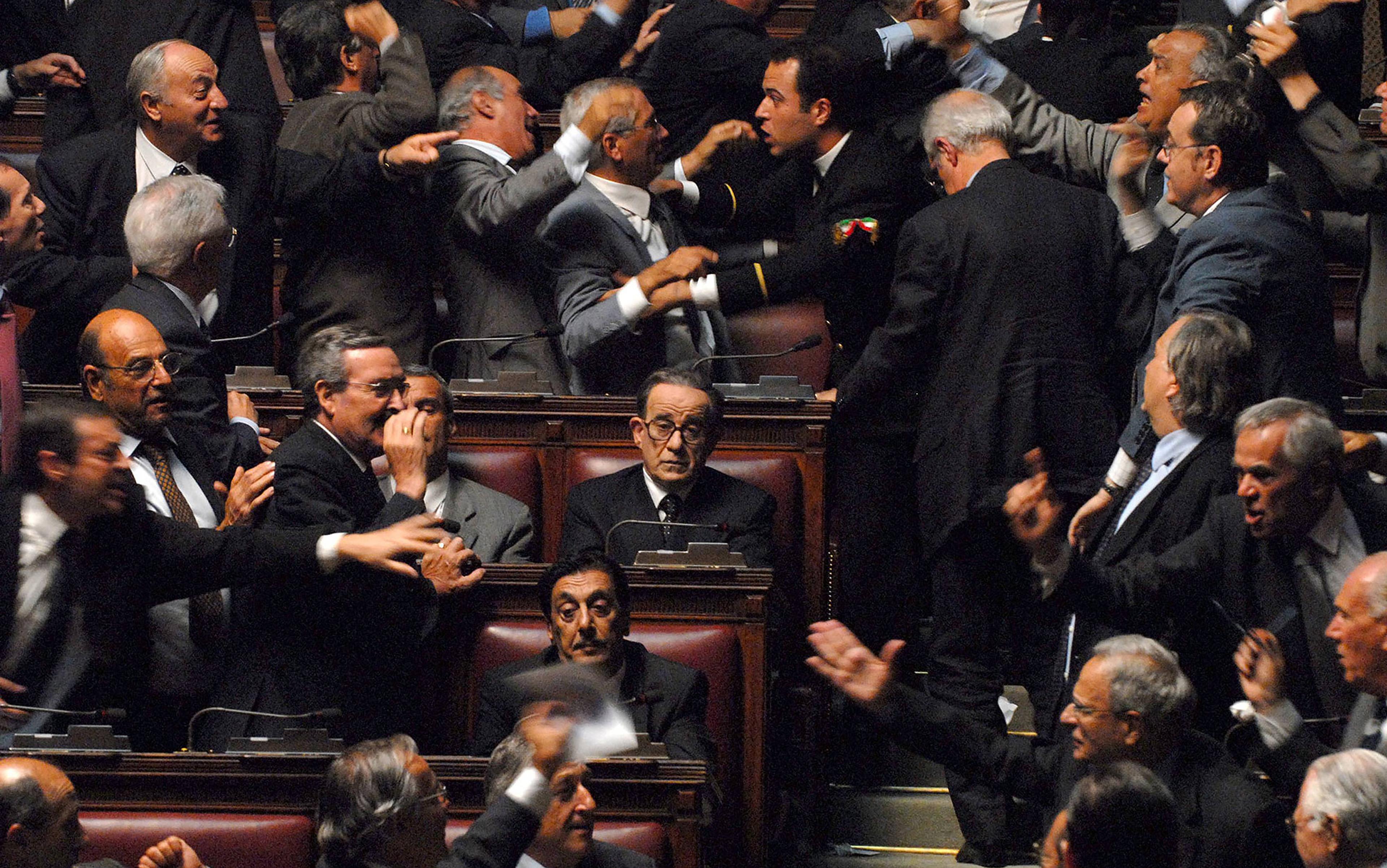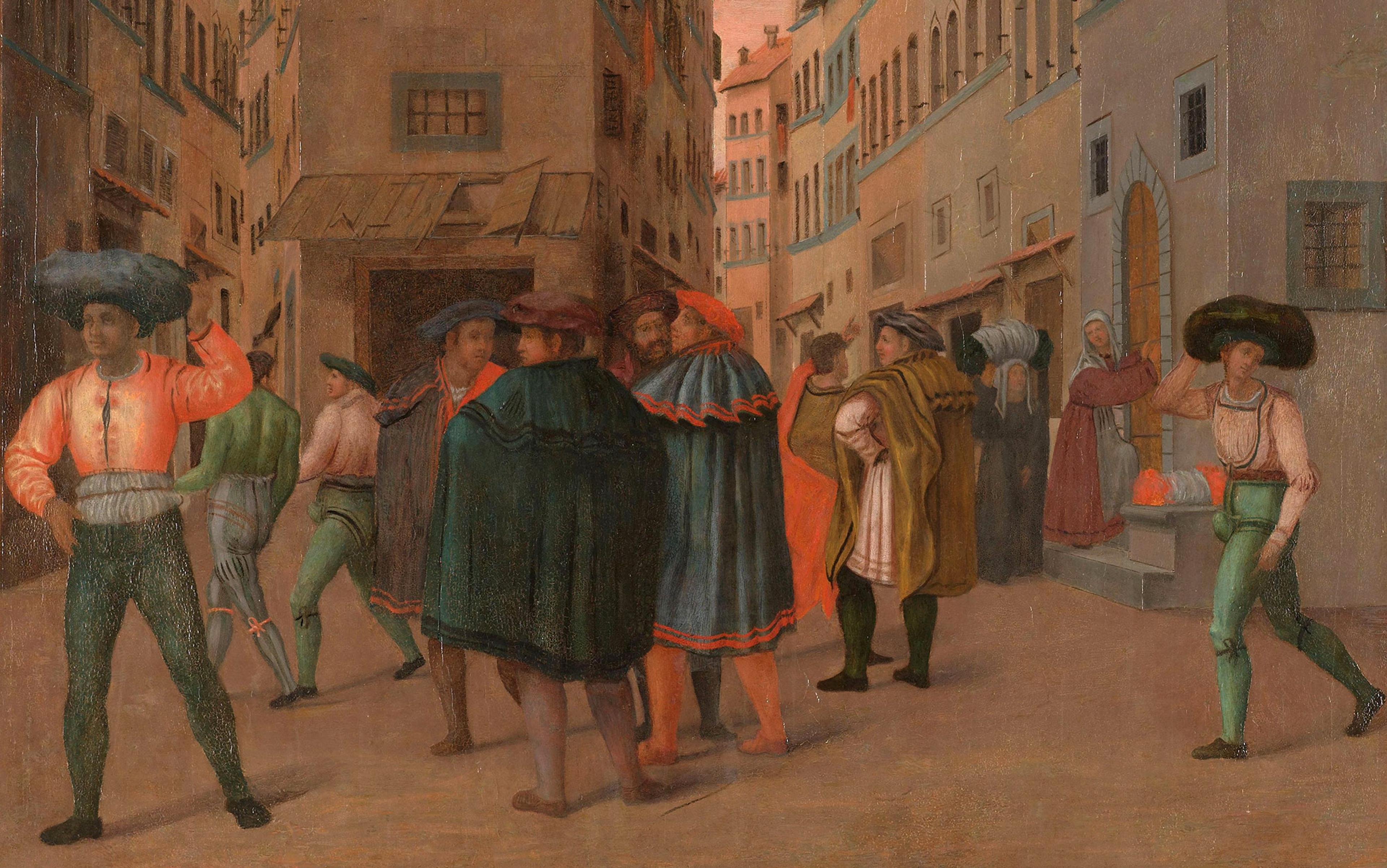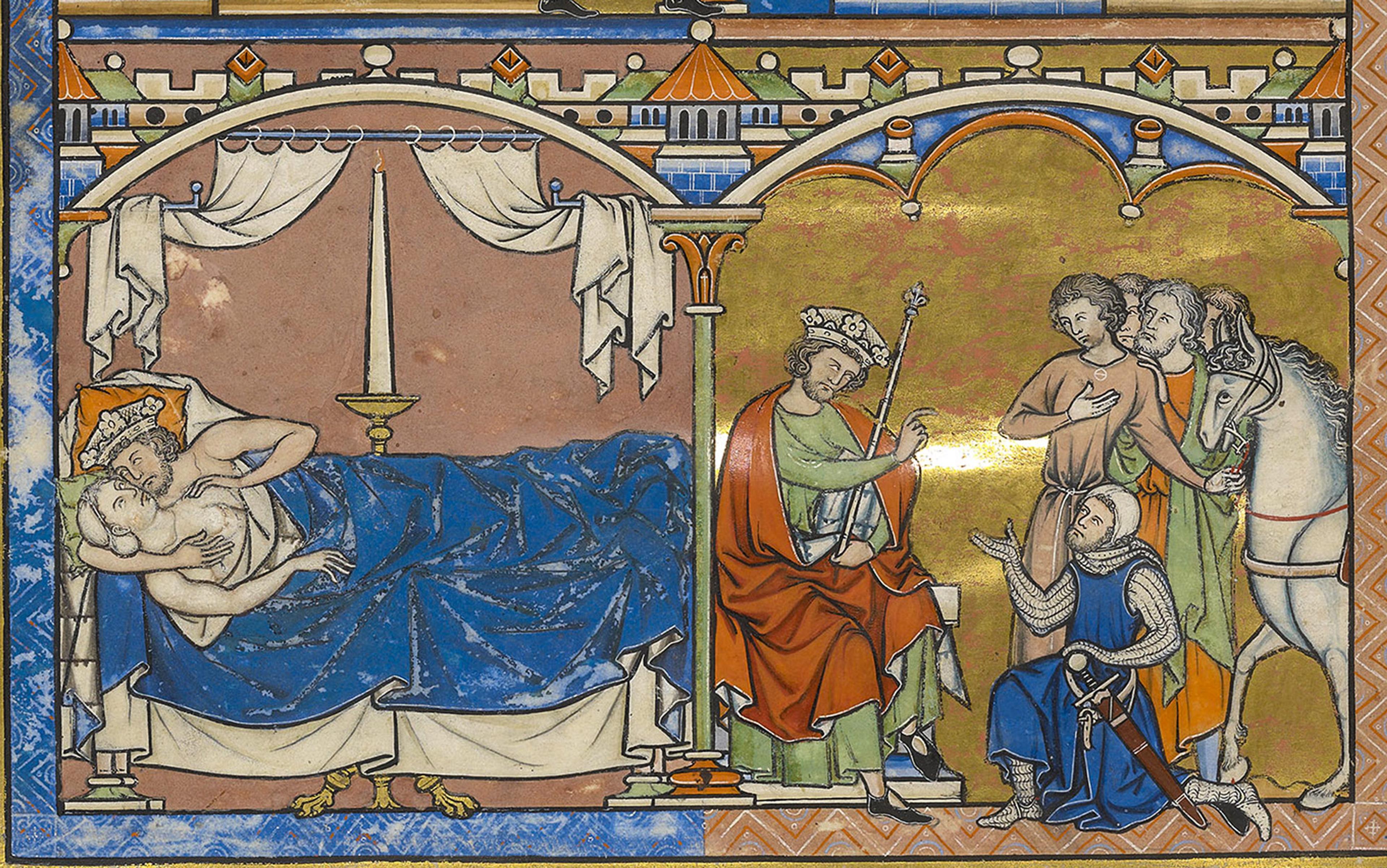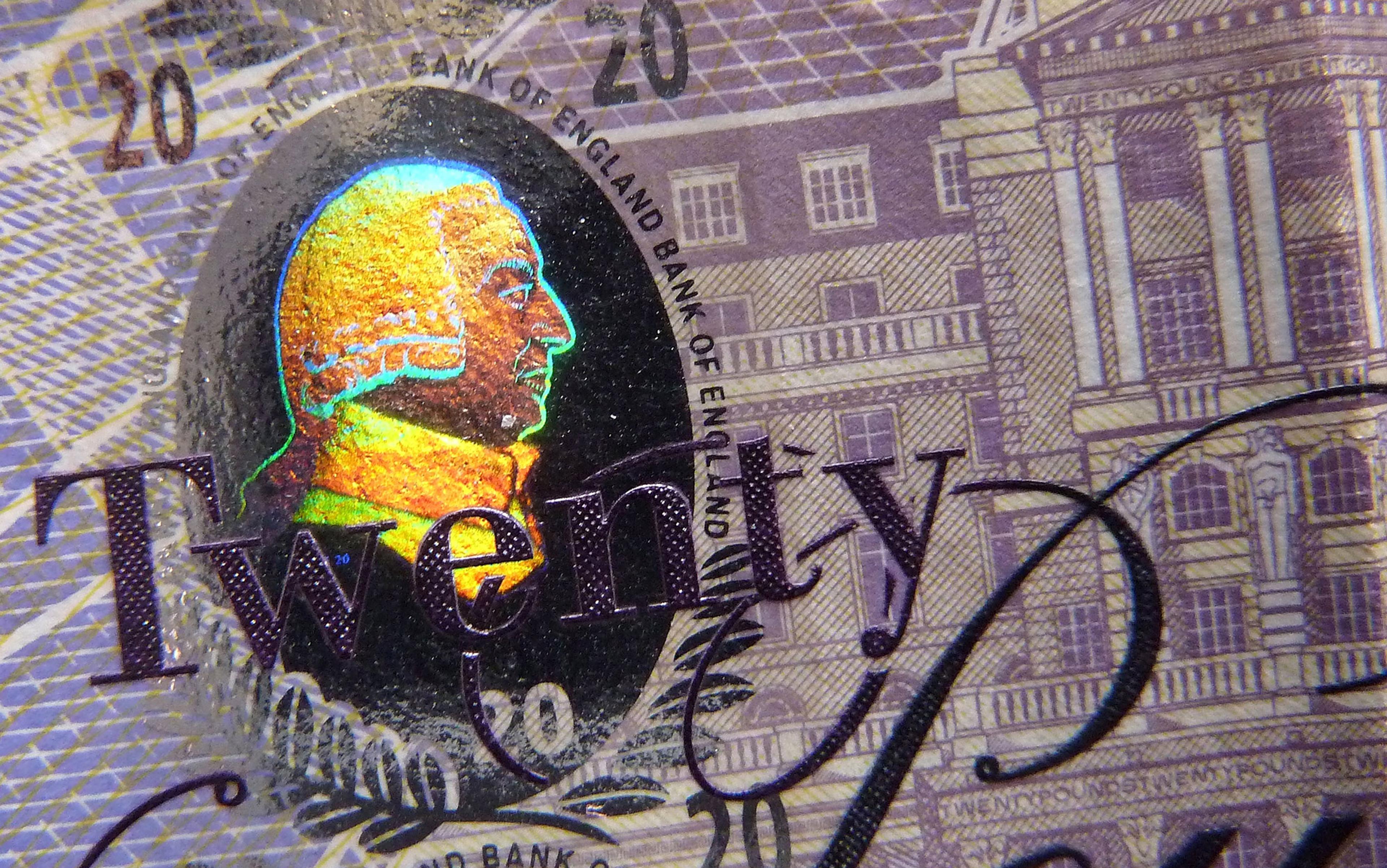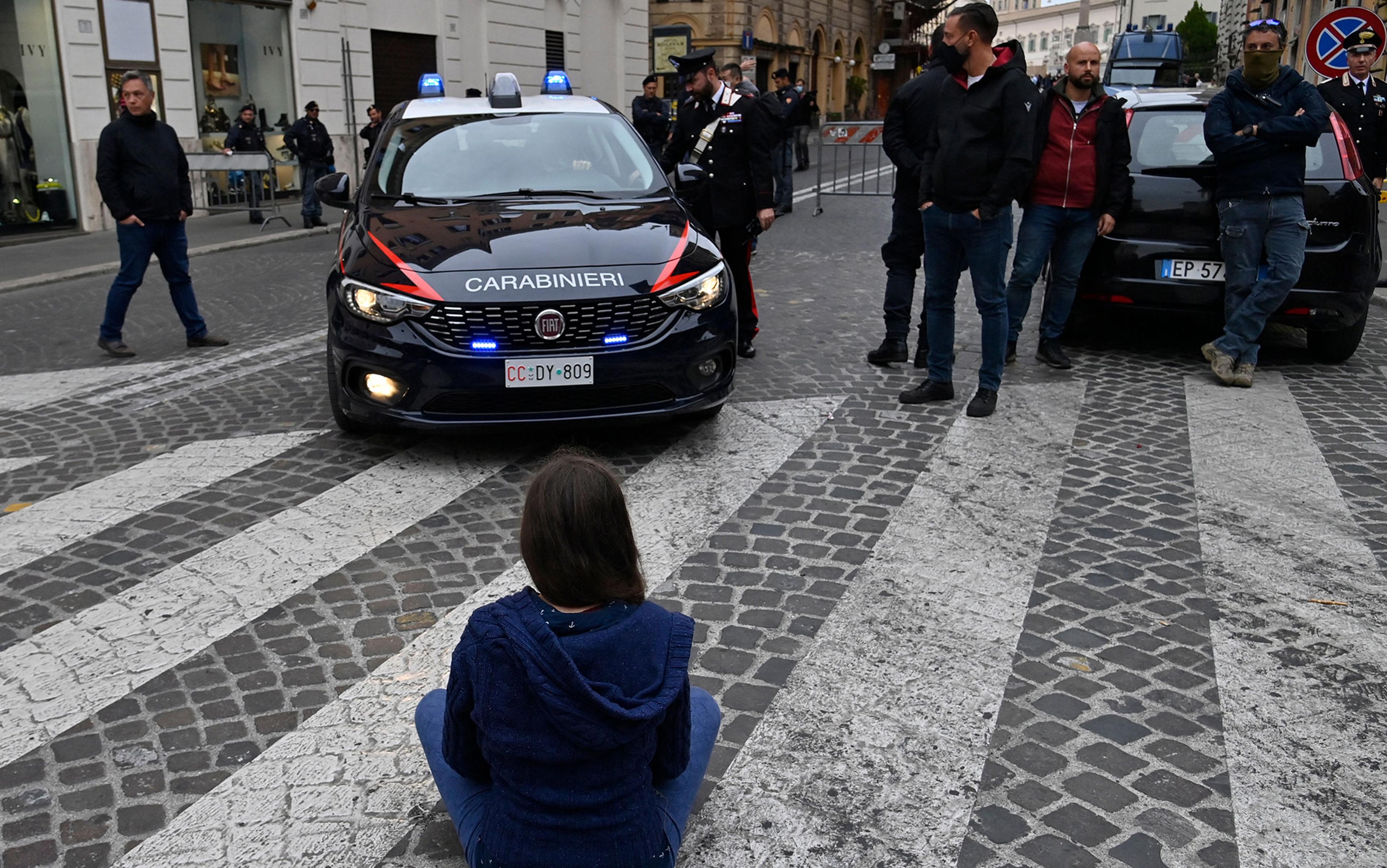Niccolò Machiavelli has a bad reputation. Ever since the 16th century, when manuscript copies of his great work The Prince began to circulate in Europe, his family name has been used to describe a particularly nasty form of politics: calculating, cutthroat and self-interested. There are, to be sure, reasons for this. Machiavelli at one point advises a political leader who has recently annexed a new territory to make sure to eliminate the bloodline of the previous ruler lest they form a conspiracy to unseat him. He also praises the ‘cruelty … well-used’ by the mercenary captain Cesare Borgia in laying the foundations of his rule of the area around Rome. However, Machiavelli did not invent ‘Machiavellian politics’. Nor was his advocacy of force and fraud to acquire and maintain rule the cause of individual leaders using them. What then did Machiavelli do? What did he want to achieve?
In Chapter 15 of The Prince, Machiavelli infamously declares:
I fear that … I may be held presumptuous … But since my intent is to write something useful to whoever understands it, it has appeared to me more fitting to go directly to the effectual truth of the thing than to the imagination of it. Many have imagined republics and principalities that have never been seen or known to exist in truth; for it is so far from how one lives to how one should live that he who lets go of what is done for what should be done learns his ruin rather than his preservation. For a man who wants to make a profession of good in all regards must come to ruin among so many who are not good.
Unlike the imaginary republics and principalities advocated by earlier political theorists such as Plato, Aristotle, Augustine and Aquinas, in which both governors and governed were to be educated to be as virtuous as possible, Machiavelli proposes to teach political leaders, both potential and actual, ‘to be able not to be good and to use or not use that knowledge according to necessity’.
Despite his reputation as a teacher of tyrants, if not a teacher of evil per se, a thoughtful reader recognises immediately that this could not have been Machiavelli’s intention. Who would need to learn ‘to be able not to be good’? Clearly not the likes of Borgia or the harsh and duplicitous Roman emperor Severus, whom Machiavelli also praises. By deceiving and killing their competitors, such men proved that they were ‘able not to be good’ without his help. However, they might not have known how to use and not use that knowledge according to necessity.
Borgia was exiled by the man he helped to make pope, and Severus was unable to teach his son how to perpetuate his family’s rule. As Machiavelli observes, leaders tend to persist in using the means that have enabled them to succeed in the past, even when those means are no longer suited to the circumstances. The impetuous continue to forge ahead even when caution is warranted, and the cautious do not seize the opportunities that arise. In teaching his readers to be able not to be good and to use or not use that knowledge according to necessity, Machiavelli thus appears to be addressing two sorts of political actors: the good, who do not know how to be bad, but need to learn to be able to do so in order to be effective; and the bad, who do not know how to use (or not use) their ‘ability’ to establish a lasting regime.
Why did Machiavelli think such a lesson was needed? According to him, most human beings do not actually want to be virtuous or good. Regarded as individuals, human beings are weak and needy. By seeking to acquire ever more and to protect what we have already amassed, we naturally come into conflict. We thus join together to form political communities not only in order to acquire what we need but also to protect what we have acquired from the predations of others. But once such political communities are formed, their members also become divided by two mutually opposed ‘humours’ or ‘appetites’: the desire of ‘the great’ (or, as we might say today, the elite) to command and oppress the people, and the desire of the people not to be commanded and oppressed. It is an illusion to think that the leaders or ordinary citizens of a political community seek a ‘common good’ beyond defending that community from external predators. There will always be a more or less explicit conflict between those who want to rule and those who do not want to be ruled.
In The Prince, Machiavelli states that there are three possible outcomes of the conflict between the two humours: principality, liberty or licence. But in a book ostensibly devoted to the education of a ‘prince’, he does not explain how ‘liberty’ can be achieved through a balancing of the two humours; he reserves that lesson for his Discourses on Livy, in which he praises the Roman republic as an example of how that happened. In The Prince, he confines himself to urging political leaders, once they acquire power, to seek the support of their people.
The first reason he suggests that a leader should seek the support of the people rather than favouring his ‘great’ allies or partisans is that the ambitious ‘great’ regard themselves as his equals, and therefore wish to displace him. They will demand ever more offices and goods as the price of their continued support. Attempts to satisfy them will necessarily fail and, in failing, add to the leader’s enemies. A leader can satisfy his people, however, because ‘the end of the people is more decent (onesto) than that of the great, since the great want to oppress and the people want not to be oppressed’.
Second and more fundamental, there is strength in numbers: the people are much more numerous than the great. Machiavelli likes to use shocking examples and language. He points to the historical example of Borgia as well as to Oliverotto Euffreducci, the ruthless ruler of Fermo, and Agathocles, tyrant of Syracuse, to show that the relatively few ‘great’ in any particular polity can be assembled under false pretences and slaughtered, but reminds his readers that a ‘prince’ will have no one to rule if he murders most of his people. A political leader will need subordinates to help him rule, but he can do perfectly well without any given set of ‘great’ persons, since he ‘can make and unmake them every day’. He can make some ‘great’ by giving them lands and offices, or unmake them by taking these, and their lives, away. Machiavelli thus indicates that the ‘great’ are not different from the many by nature – human nature is the same in all. Because those granted high offices have more power and goods, they no longer feel as liable to oppression as the people merely subject to the government. Rather than desiring merely not to be oppressed, as a result of their relative positions the ‘great’ come to desire to acquire more by oppressing others.
Practices and attitudes thought to be virtuous in private individuals have deleterious results for public officials
Having observed that all human beings fundamentally desire to preserve themselves and, in trying to do so, strive to acquire ever more, Machiavelli tries in The Prince to persuade the politically ambitious that, however they acquire rule, the best way to keep themselves in office is to satisfy their people’s desire to have their lives, families and properties secured. In teaching political leaders ‘to be able not to be good’, Machiavelli does not, therefore, simply advocate self-interested, immoral or amoral behaviour. He appeals to the desire of the politically ambitious to rule in order to convince them that the best way of realising their desire is to satisfy the desire of their people not to be oppressed. Satisfying the desire of the people to be secure in their lives, families and property is and ought to be the end or purpose of government, as Machiavelli sees it. However, because he explicitly dedicated The Prince to a prince and addressed his advice to the politically ambitious, many readers and commentators have missed this central democratic thrust of his argument.
Machiavelli teaches readers of The Prince to be able not to be good by showing them that practices and attitudes thought to be virtuous in private individuals have deleterious results for public officials. Liberality was praised by ancient moralists, and generosity or charity has been praised by Christians (and others) to this day. However, Machiavelli points out, a political leader who depletes his own resources by generously granting offices, lands, titles and other emoluments to his aristocratic friends or partisans will lose their support when he needs it, unless that leader acquires new funds by taxing his people and so arousing their hatred. Rather than squander his capital by rewarding an ungrateful few, a political leader will prove himself to be truly liberal to the many by conserving his own resources so that he will be able to use them to defend himself and his government when needed. Likewise, a political leader who pardons criminals might appear to be merciful to a few, but he is cruel to his many subjects or fellow citizens who fear for their lives and property when the law is not enforced.
Machiavelli argues that political leaders have to use both force and fraud in order to acquire and maintain power. But he warns that they must always strive to appear to be full of mercy, faith, honesty, humility and religion – especially religion – even if they cannot be so in fact. (Anyone accused of being a ‘Machiavellian prince’ has not, therefore, succeeded in becoming such.) Why will everyone not merely believe but praise a head of state when he claims to be waging war, rigorously enforcing the law, or raising taxes for the sake of the true faith or humanity? If a political leader does what is necessary to ‘win and maintain a state’, Machiavelli assures his readers, ‘the means will always be judged honourable, and will be praised by everyone’.
Readers often take this to mean simply that the end justifies the means. Machiavelli refers, however, to a particular end: establishing and maintaining law and order, which is in the people’s interest as much as it is in the ruler’s. It is difficult, if not impossible, for observers to discover what a person’s true motives are. In fact, political leaders act in order to acquire and maintain power for themselves. But if a leader acts to maintain a state that protects the lives and property of his subjects or fellow citizens from external aggression and domestic crime, they will believe him when he declares that he has been acting for the common good. In other words, people judge a leader’s character and words by the effects of his deeds. That is the ‘effectual truth’ that Machiavelli seeks in The Prince.
Machiavelli’s redefinition of the true ‘virtues’ of a ruler obviously constitutes a severe debunking of both ‘virtue’ and ‘rule’. Rather than a noble endeavour undertaken from a sense of duty in order to achieve a common good, effective rule will be undertaken and conducted solely on the basis of a clever calculation of the best means an ambitious man can use to satisfy his desire to command without becoming hated and so possibly overthrown. However, Machiavelli also shows that there is – or, at least that there can be – a certain conjunction of the prince’s desire to command and the people’s desire to be secure, even though these desires remain essentially opposed, but it requires great ingenuity to conceive of the means by which both can be satisfied to a certain extent. In The Prince, he points to one way of doing this by reminding his reader that there are two ways of fighting – the human way with laws, and the bestial way with force and fraud.
He indicates what he means by the human way of fighting with laws when he observes that France is an example of a well-ordered and governed kingdom, and that the first of the ‘infinite good institutions on which the liberty and security of the [French] king depend … is parlement’. This French court enabled the people to resist the ambition and insolence of the nobles by accusing and trying them of crimes against the king. Parlement thus contributed not only to the security of the people, but also to the security of the king. In a monarchy, the laws are the laws of the king; and those who have the power to threaten his rule are the nobles or ‘great’ who see themselves as equals to the king and continually try to acquire more wealth and power for themselves, if not simply to replace him.
By giving the people the power to check the arrogance and ambition of the nobles, the institution of such a court enabled the king to use the people as a means of securing his rule without his having to act directly or with force against the nobility. Just as Borgia brought good government to the Romagna by using a cruel administrator to frighten everyone into submission, and then avoided responsibility himself for the use of such cruel means by replacing his assistant with a civil court, so, Machiavelli suggests, the king of France has acted both to secure his own rule and to escape blame for the means by setting up a court in which the people judge the nobles.
In The Prince, Machiavelli thus seeks to persuade his politically ambitious readers to institute what we have come to know as a ‘constitutional monarchy’, based on an army composed of their own people, and characterised by a balance of powers that secures the rule of law. Because such a nation-state could be established only in a relatively large territory, Machiavelli concludes The Prince with a call to the Medici to muster and train an army ‘to seize Italy and to free her from the barbarians’.
What Machiavelli does not mention in The Prince, but what he states explicitly in his Discourses, is that a young virtuous political leader at the head of a citizen army, who seeks and acquires popular support the way Machiavelli argues that a ‘prince’ should, constitutes the greatest threat to the preservation of a republic. Ordinary people do not perceive the seeds of tyranny that are concealed by the favours that a popular leader does for them. Happy to see such a popular leader put down the ‘great’ who have lorded over them in the past, the people are often willing to see a leader (such as Venezuela’s former president Hugo Chávez, say) abolish the constitutional checks or restraints that prevent any single individual from becoming a tyrant. So, whereas in The Prince Machiavelli advocates a kind of alliance between the prince and the people to keep the great in check, in the Discourses he seeks to create a kind of alliance between the other ‘great’ men and the people against any emerging prince or tyrant.
Government should not serve the interests of the few best, but the more modest desires of the many
The ‘remedies’ that Machiavelli proposes to counter the threat that a popular leader poses to a republic are to make both the people and other ambitious citizens suspicious of the motives and ambition of seemingly virtuous young leaders. In other words, he urges them not to be taken in by the ‘appearance’ of religion, mercy and humanity that he himself advised a ‘prince’ to project. Instead, the people should suspect that their ‘captains’ have more dangerous hidden ambitions. He also counsels other ambitious or ‘great’ citizens to compete with emerging young heroes for popular favour. To ensure that there is rotation in office and that term limits are respected, ambitious citizens must be willing not only to cede offices they have held to their competitors, but also to serve under them. And to expose attempts on the part of ambitious individuals to overthrow the republic, it is necessary to institute procedures whereby such individuals can be accused and tried before large popular juries.
These trials will not necessarily produce justice for the individuals in question, but the danger of facing such a trial will serve as a check on individual ambition. Indeed, the trials themselves allow the people to ‘vent … those humours that grow up in cities’. Unorganised ‘spontaneous’ popular resistance to the oppressive desires of the ‘great’ is not sufficient to check them, Machiavelli emphasises. The blind fury of a mob can be immensely destructive, but it soon subsides and thus has no lasting positive effect. It takes a single mind to design institutions, and a single leader to arm and organise an effective force capable of defending a city from external aggression and maintaining order inside it. The great advantage of republics over principalities is not that they do not require ‘princes’ or leaders; it is that they are not stuck with one. They can elect a succession of different individuals able to act in a variety of circumstances.
Why does Machiavelli think that republics are better than ‘principalities’, the rule of one man? In properly structured republics where people feel secure in their lives, families and property, both individuals and the community grow and prosper:
Larger peoples are seen there, because marriages are freer and more desirable to men since each willingly procreates those children he believes he can nourish. He does not fear that his patrimony will be taken away, and he knows not only that they are born free and not slaves, but that they can, through their own virtue, becomes princes. Riches are seen to multiply there in larger number, both those that come from agriculture and those that come from the arts. For each willingly … seeks to acquire those goods he believes he can enjoy once acquired. From which it arises that men in rivalry think of private and public advantages, and both … grow marvellously.
The main criterion by which governments should be judged to be good or bad is not the moral character or intelligence of the person or persons who rule. It is rather the common good that results from a government that secures the lives, families, liberty and property of its citizens. Machiavelli thus advocates a thoroughly democratic purpose for government. But he does not think that purely democratic processes or means are always the best or even adequate ways of achieving that end. Leaders who understand that the best way to fulfil their own desire to rule is to satisfy the desires of their people for security, prosperity and advancement are also needed.
Because all effective political action requires organisation and thus leadership, Machiavelli addresses all of his political writings to individuals in positions of power or ambitious to hold them. But in urging them to institute and maintain ‘good government’ by securing the lives, families and properties of their subjects or fellow citizens, he does not appeal to their sense of justice, mercy or public-spiritedness. On the contrary, he appeals to their ambition – their human desire for status and wealth. Machiavelli’s debunking of traditional notions of virtue and vice was therefore a necessary part of his broader contention that government should not serve the interests of the few best, but that it should serve the more modest desires of the many. He does not expect ordinary people to understand the intricacies of military strategy or institutional design – that is, the means by which their basic desires can be satisfied. He is certain, however, that they are the best judges of the outcomes or effects.
